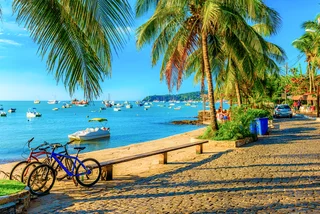Prague City Hall announced it will support culture and tourism with another quarter of a billion crowns. Theaters and other cultural institutions will be able to obtain a special-purpose subsidy, and assistance will also go to contributory organizations that have been most severely affected by the loss of admission income. Money will also go to vouchers and programs to attract Czech tourist to stay in Prague hotels and visit attractions once they reopen.
Prague is investing a total of 100 million CZK in a campaign to attract domestic tourists and a benefit program including discounts on admission. The measures have already been discussed by an economic council composed of city assembly members of all represented political parties and will now be approved by the City Council.
City Councilor Hana Třeštíková (Praha sobě) pointed out that, according to a preliminary analysis, turnover in culture and tourism in Prague will fall by more than 100 billion CZK, and called on the government to acknowledge Prague’s significant share in the total turnover of the Czech cultural and tourism industry. But the city will take measures on its own to support the important tourism sector.
“We are not sitting and pointing a finger at the government; we in Prague with a limited budget are doing what we can. We helped culture with injections in the form of purchases of books from publishers or orders for works of art. Now we will also follow up with direct financial support. The fastest form is an extraordinary targeted subsidy to grant recipients, but of course we will also open it to those who are not recipients of support,” Třeštíková, who is responsible for culture and tourism, said on the City Hall website.
“In total, we are releasing another 120 million CZK into the culture. In the same way, we will divide another 100 million CZK into a restart of tourism and at least a partial rescue of the summer season. We want to open Prague more to Czech families, who will receive discounts on accommodation or free admission,” Třeštíková added.
Via an extraordinary cultural special-purpose subsidy, Prague will support entities that have already received a grant for year-round activities. These entities will be able to apply for an increase in existing grant support of up to 20%.
Prague City Hall said that, unlike the Czech Ministry of Culture, it will not overlook support for private theaters or clubs, for which it will open applications for support up to 500,000 CZK. The capital will support selected organizations most affected by the decline in tourism with an amount of up to 70 million CZK.
Earlier, the city decided to buy books from Prague publishers for 10 million CZK and to buy and compete for works of art through the City Gallery (GHMP) in the same amount. In addition to financial support, Prague is also preparing amendments to grant agreements in connection with the change of dates or scope of supported actions and the suspension of the condition of a maximum of 80% financing of projects from public sources.
Třeštíková in cooperation with Prague City Tourism (PCT) also presented a benefit program for the initial restart of tourism called In Prague as at Home (V Praze jako doma). “For each night of a stay, the tourist receives a voucher worth 400 CZK, for which we offer discounted or free admission to city galleries, observatories, planetariums or even the zoo. We want to make the visit to Prague as attractive as possible. Revenues from foreign visitors are lost for this year, but the program can be at least a partial patch for services and also an opportunity to show our beautiful Prague to more tourists from the Czech Republic,” PCT director František Cipro said.
Telemarketing Specialist with English - US Market

In addition to Czech tourists, the PCT will also target tourists from neighboring countries in the campaign. The city has set aside 100 million CZK for a benefit program and campaign that will cover vouchers for 157,000 visitor nights. The Association of Hoteliers and Restaurateurs (AHR ČR), the Chamber of Commerce (HK) and the Confederation of Trade and Tourism (SOCR ČR) cooperated on the program.
The benefit program applies to guests accommodated in collective accommodation establishments as defined by the Czech Statistical Office (ČSÚ), which have historically paid occupancy fees to the city. It does not apply, for example, to guests staying accommodation booked via Airbnb or similar services.
Třeštíková also presented the first preliminary analysis of the economic impacts of COVID-19 on the cultural industry and tourism. She pointed out that Prague has more than a half share in the Czech cultural industry and a third share in consumption in the field of tourism.
“We have put all the available data on the table, and although we are still adding up the damage, the first estimates speak for themselves. Prague culture is a ‘company’ with an annual turnover of 38 billion CZK, and if we anticipate the release of restrictive measures by September, we must prepare for the decline of almost 12 billion CZK and 14,000 jobs. The outage in tourism in Prague is around 100 billion CZK and tens of percent of jobs. If the government does not intervene, the shortfall of the Prague economy will affect the whole country,” Hana Třeštíková emphasized.
According to tan analysis called Economic Impact Art, the cultural industry in Prague employed over 46,000 people last year, and 14,000 fewer jobs can be expected this year. The economic impact of the pandemic will affect all cultural sectors, City Hall states.
A half or higher decline compared to the previous year is expected in the field of film production due to the stopping of filming and loss of foreign productions. Also significantly affected are closed theaters and canceled festivals, as well as libraries and museums dependent on foreign visitors. Tourism is expected to fall by around 300 billion CZK, a third of which is in Prague.












 Reading time: 4 minutes
Reading time: 4 minutes 


 Italian
Italian
 German
German





















